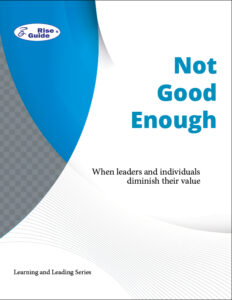I'm not mean, I'm just direct. I don't have time to mince words
April
____________________________________________________________________________________________________________
We can come up with all sorts of excuses for using the words we choose, but that doesn’t make it right.
I’m not talking about overly sugar coating a conversation. But the words you choose to use, and your tone of voice carry power. Words can really hurt.
There was a rising star in a company, we’ll call him Tom. One day in a large staff meeting, Tom asked a question and in front of the entire group and the CTO responded, “That’s stupid.” Tom took it personally and several weeks later he left the company.
In her book, “Daring Greatly”, Brené Brown talks about how shame can affect people.
Shame is real pain. The importance of social acceptance and connection is reinforced by our brain chemistry, and the pain that results from social rejection and disconnection is real pain. In a 2011 study funded by the National Institute of Mental Health and by the National Institute on Drug Abuse, researchers found that, as far as the brain is concerned, physical pain and intense experiences of social rejection hurt in the same way. So when I define shame as an intensely “painful” experience, I’m not kidding. Neuroscience advances confirm what we’ve known all along: Emotions can hurt and cause pain.
Are you being shortsighted?
Your direct approach may not be shaming individuals, but are you fostering a positive environment or negative one? You might be successful with your current task by treating others rudely or “directly”, but unless you only have this single task for your entire career at your company, you’re going to need to continue to work with others for future assignments.
You might be thinking that some of these people are obligated to work with you, maybe they work for you in your team. But even those people have the choice to do the minimum required effort or to choose to go above and beyond.
Ask yourself, when the next problem arises, do you want people circling around you doing whatever it takes to address the problem or are you content to have people sit idle awaiting your specific instructions and then only performing what you specifically state?
Do you want people willing to work with you in the future?
Why it matters.
Words can build someone up or crush their spirit. They can motivate or demoralize. Sometimes people don’t consider how powerful their words can be or how they can leave a lasting impression.
As a leader or parent, you can intimidate and beat down or you can encourage and lift up. As a writer you can promote divisiveness and animosity or foster harmony and understanding. As a colleague or friend, you can humiliate and disparage or encourage and support.
This doesn’t mean you can’t have difficult discussions. You can, but they should be conducted with compassion and empathy.
Words have tremendous power. The words you say and the tone you use can go a long way to fostering a relationship or crushing someone’s soul.
It is the relationships in your professional and personal life that matter.
Projects come and go. We don’t know it all and we can’t do it all. We NEED relationships in our lives to accomplish things.
It’s not what you said, but how you made them feel
How many times have you passed someone in the hall saying, “How are you?” but you kept walking without waiting for a response?
Words are important. They carry the power to lift up or heal. But words can’t heal if you don’t take the time to say them. And they are shallow if said without care.
You don’t know what someone is going through unless you ask. Too many friends, team members and colleagues suffer in silence.
Stopping and taking the time to connect is vitally important. You might be the lifeline the person needs today, right now.
What do you want to be remembered for?
Think before you speak. Consider your tone as much as the words you choose. Put yourself in the other person’s shoes and consider how you would feel with what is about to be said if it was directed at you. Think twice if what you are about to say is negative. It might need to be said, but remember – once it passes your lips, you can’t take it back.
Keep an eye out for my next newsletter where I will address what to do when you are on the receiving end of this “directness” from someone else.
________________________________________________________________________________________________
© 2024 Rise & Guide
